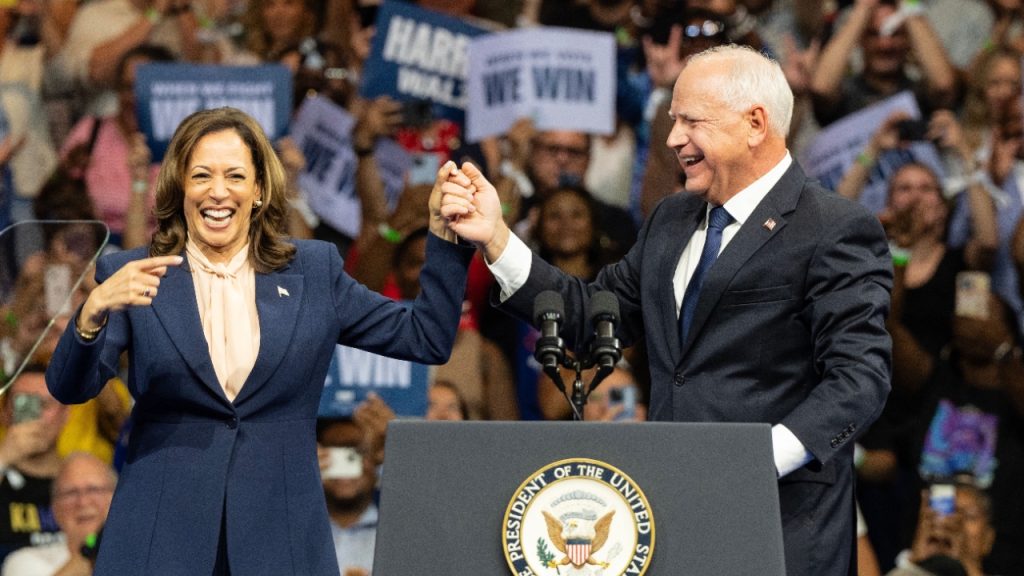Just 16 days after President Biden withdrew from the presidential race and endorsed her, Vice President Kamala Harris chose Minnesota Governor Tim Walz—a former teacher and military veteran— to be her running mate, a process that usually takes a vetting team months.
“One of the things that stood out to me about Tim is how his convictions on fighting for middle-class families run deep. It’s personal,” Harris wrote in an Instagram post announcing her choice of Walz.
Walz, 60, is a former high school teacher and football coach who served in the U.S. Army National Guard for 24 years. He also served as a congressman for six terms before running for governor in 2018. He is in his second term as governor after being reelected in 2022.
Doubling Down on ‘Weird’
Walz was the first to call the Republican candidates “weird”—a term that has taken off among Democrats in the campaign against former President Donald Trump and J.D. Vance, a U.S. senator.
Fordham experts agree that Walz should appeal to middle-class voters, and also say that popularizing “weird” probably helped his chances.
“Walz will add to the already increased excitement among the Democratic base, since he’s already been an effective spokesperson for the campaign introducing the ‘weird’ angle that Harris and other Democrats have doubled down on,” said Boris Heersink, Ph.D., associate professor of political science.
“Harris’s final list of vice-presidential options was a strong one and each of the candidates she was reportedly considering could have contributed something valuable to the ticket and in office. That being said, the selection of Walz to me seems like a smart choice,” Heersink added. “His record in Minnesota as governor includes a long list of policies that Democratic voters strongly support. And while Minnesota is not a swing state, he may appeal to middle and working-class voters in the Midwest.”
Jacob Smith, Ph.D., assistant professor of political science, said, ““He was not an initial favorite in the VP search, but got a lot of attention popularizing the line of Trump and the GOP being ‘weird.’ His ‘happy warrior’ style was likely appealing to Harris.”
Progressive Record
One group that was behind Walz early on was progressives, Smith said, despite him having a more moderate voting record in Congress that fit his moderate to right-leaning district.
He has been more progressive during his governorship. For example, Minnesota passed laws supporting free school breakfast and lunch, universal background checks for guns, and legalized marijuana, Smith said.
Winning in Conservative Areas
Walz got his start in politics winning a seat in Congress in 2006. Smith said he was what is often known as a “wave baby”—he won in 2006 largely because of George W. Bush’s lack of popularity when a lot of Democrats without previous political experience won. The district he won was Republican-leaning. But Walz’s background as a teacher, football coach, National Guardsman, and rural Nebraska native may have held particular appeal to the small-town Midwest voters, he added.
“Walz survived a number of tough reelections in Congress and barely won reelection in 2016 as his seat shifted heavily towards Donald Trump. He has lots of experience winning tough reelections in conservative areas,” said Smith.
Walz would be the third Democratic vice president from Minnesota elected in relatively recent years after Hubert Humphrey in 1964 and Walter Mondale in 1976.

